DJS Fellows
DJS Fellowships provide an opportunity for students of any discipline to participate in furthering diversity, justice, and sustainability efforts on the PLU campus. DJS Fellows will actively engage in research about existing practices and uses of resources on the PLU campus and examine best practice and research to assist with improving our campus’ commitment to diversity, justice, and sustainability. They also will investigate and propose strategies and solutions to address sustainability practices on the PLU campus, and help identify funding agencies or opportunities for the projects. The DJS fellowships are intended to continue the collaboration between students, faculty, and staff around issues of diversity, justice, and sustainability while building students’ skills. DJS Fellowship project topics will be guided by current and emerging needs of DJS initiatives at PLU.
Fellowship Award:
$1,500 will be awarded to up to 6 students for their project contributions
APPLY BY MARCH 31, 2025
- Assistant Project Manager (Lighting Retrofit Project) (April – June): Supporting the project management of a large-scale lighting retrofit across multiple campus buildings. (see full description on Career Opportunities Board)
- Assistant Energy Manager (Energy Management Plan Grant) (April – June): Assisting in the development and implementation of an Energy Management Plan, with a focus on compliance with the Washington Clean Buildings Act. (see full description on Career Opportunities Board)
Successful candidates will:
- Maintain full time enrollment at PLU for the Fall 2023 term
- 2.5 semester and cumulative GPA and good academic and disciplinary standing
- A strong commitment to diversity, justice, and sustainability and a commitment to continued learning and growth in this area
- Experience with or willing to learn project management
- Express curiosity and commitment in continuing their own leadership development and identity formation
- Appreciation and respect for being a member in a community that values multiple perspectives
- Experience working as a member of diverse teams.
- Operates with a commitment to organization, punctuality, and communication.
- Demonstrates initiative, creativity, and flexibility
Student Commitment if Funded
- Contribute 80-96 hours towards fellowship project
- Meet regularly for 1:1’s with Center for DJS advisor and attending planing meetings
- Actively participate and contribute to (as invited) the department in which the project and/or research is situated
- Write a concluding report and reflection at the end of the project
Questions?
Please contact Nicole Juliano, Director – The Diversity Center at juliannh@plu.edu
2022-2023 Fellowship Reports
Sarah Lynn Seabreeze (PLU ’25) explored the PLU Archives and conducted current student focus groups to share a story of PLU’s engagement with Native Communities.
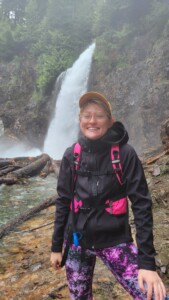 Sarah Lynn Seabreeze (PLU ’25)
Sarah Lynn Seabreeze (PLU ’25)
Hometown: Sun City, Arizona
Major: Religion, English-Writing, minor in NAIS
“I choose Indigenous Connections because, as some who is Native (Tlingit), I saw a severe lack in the relationship between the University and the original care takers of the land PLU is on. I am passionate about Indigenizing colonized spaces.”
Elizabeth Elliott (PLU ’22) assessed PLU’s current waste diversion education and offered suggestions to a cross campus group on reengaging Move Out as a waste diversion education.
Elizabeth Elliott (PLU ’22)
Hometown: Kent, WA, USA
Major: Science, Technology and Society Major; Women’s and Gender Studies Minor
“I chose the Waste Diversion Education project because of how waste management affects us daily. It seems like a small act to assist in marketing and yet this effort can have a large impact over time and hopefully reduce barriers to Waste Diversion. I am beginning to process my own waste consumption and disposal and I know I do not have answers, but I can ask basic questions to begin to understand what can be started.”
Fiona Ashton-Knochel (PLU ’24) interviewed PLU community members and developed a narrative for advocating for outdoor third spaces.
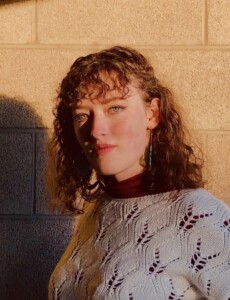 Fiona Ashton-Knochel (PLU ’24)
Fiona Ashton-Knochel (PLU ’24)
Hometown: Salt Lake City, Utah
Major: Environmental Studies major, Music minor
“Biodiversity on campus is part of what makes PLU feel like home. I chose the sector of grounds and habitat restoration because I want to show how we, as students, can help preserve the native species of plants and animals that make this land unique.”
Shalom Wundimu (PLU ’22) explored PLU’s data tracking of our resources consumptions and offers suggestions on updating our university sustainability points of pride.
Hometown: Las Vegas, Nevada
Major: Environmental Studies Minor: Chemistry
“With respect to it being the last year of my undergraduate career and as a student on the pre-dental track, I have begun to reflect on how my current studies can be applied to my future profession. From the presented projects, I selected “Resource Conservation” as my DJS Fellows project as I can continue to identify ways of seeking resources of conservation (water, energy, and transportation) through research and intentional reflection. Through this project, I seek to apply this knowledge to benefit the PLU community and in turn other capacities throughout my future career.”
Mei-Yun Loya (PLU ’22) explored the idea of students as stakeholders and offers suggestions in encouraging students to be active in our campus life and decisions.
Mei-Yun Loya (PLU ’22)
Hometown: I’m originally from Texas, but I call Tacoma WA my home these days
Major: Chinese Studies
“I am really passionate and eager to explore what it means to create and connect with community so I hope there’s a lot for me to learn in this “Community Mapping” project. Additionally, I think PLU as an institution especially has a lot of room to grow in the ways that we connect to our Parkland/Tacoma community outside of campus so I hope to outline and even address these areas of potential growth.”
Monya-Dawn Wilson (PLU ’22) researched best practices for community engagement and offered suggestions on engaging PLU Parkland residents in the Blue Zone project.
Hometown: Tacoma, Washington
Major: Biology
“I chose community engagement mapping because I’m from Parkland. It is important to me to change the negative rhetoric of Parkland and to build connections with the Parkland community.”



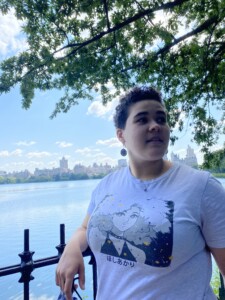
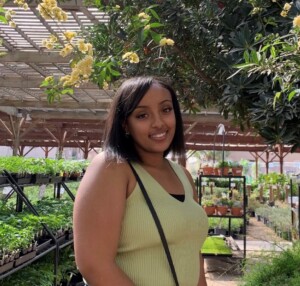
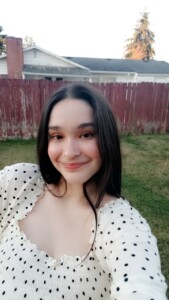
Social Media